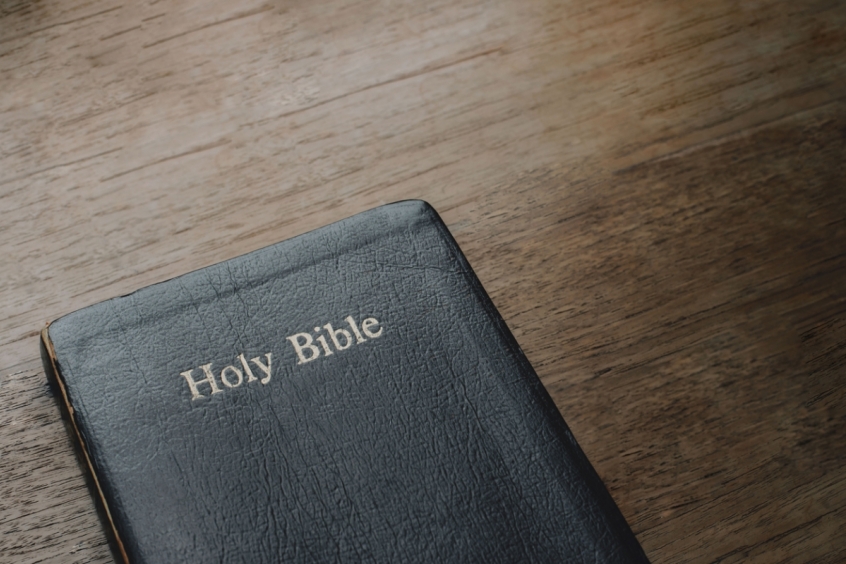
The religious coronation of a monarch goes back to ancient times and the origin of the British coronation ceremony is very much rooted in the Bible.
The first kings
Israel was first ruled by Judges, until the kingdom was created. Even before Israel became a kingdom, Deuteronomy 17:14-20 describes how future kings of Israel were to be appointed, how they should reign, and how the priests were to give them a copy of the Law which they had to follow.
The first two kings of Israel were anointed by the prophet Samuel. In 1 Samuel 10:1, we read how Samuel anointed Saul to be Israel's first king. Later a ceremony took place at Gilgal followed by rejoicing (1 Samuel 11:12) and then a few chapters later, we read of Samuel anointing David to replace Saul (1 Samuel 16:13). David was then anointed by the men of Judah (2 Samuel 2:4), and then by the elders of Israel, and he made a covenant before God (2 Samuel 5:3).
Anointing
The act of anointing is an ancient custom. Its technical term is 'unction', and this is still a custom in some Christian traditions. Being anointed with holy oil by the religious authorities is symbolic of the conferment of divine blessing, indicating that the king is ruling on behalf of God. Holy oil is made from a mixture of ingredients found in the Middle East, including myrrh and olive oil, with instructions explained in Exodus 20:23-25. Anointing is described in Exodus 29:7, when the priest is told to take the oil and pour it over the head. The Old Testament specifically records the anointing of the kings Saul, David, Solomon, Jehu and Jehoash. The term Anointed One in Hebrew gives us the word 'Messiah'.
Old Testament
The traditional British coronation service is based on events in Jerusalem as described in 1 Kings 1:38-40. The narrative described how Zadok the priest and Nathan the prophet anointed Solomon the king with oil. They then blew ram's horn trumpets, shouted "Long live king Solomon", and all the people rejoiced.
The words of these verses have been used at every coronation in England since that of King Edgar in AD 973. In 1727, these words were put to music by the composer Handel for the coronation of King George II. This anthem 'Zadok the Priest' has been used at every British coronation ever since. Other accounts in the Old Testament record ceremonies for King Jehoash (also called Joash), and King Josiah.
Crowning
Crowns have long been a symbol of royal authority. On King Saul's death, the Bible says that his crown was presented to David (2 Samuel 1:10). When David defeated the Ammonites he placed the golden crown belonging to their slain king upon his head, to symbolise that he was their new king (2 Samuel 12:30, 1 Chronicles 20:2).
In 2 Kings 11:12, and repeated in 2 Chronicles 23:11, the text describes how the High Priest Jehoiada put the crown on Jehoash's head, gave him a copy of the Law, anointed him, and the people clapped and said, 'God save the king'. In ancient cultures, queen consorts might also be crowned. Esther 2:17 tells how Esther was crowned as queen consort to the king of Persia.
The oath at a coronation stone
In the narrative about King Jehoash's coronation, the Bible states that it was customary for the new king to go to a pillar, either one of the actual pillars, or sometimes understood as a coronation stone, at the entrance of the Temple in front of the people. The king would be given a testimony, usually understood to mean a scroll of the Law, and would swear a covenant oath to serve God, and follow the Law of God (2 Kings 11:14). A similar story is told for Josiah in 2 Chronicles 34:31. In Psalm 2, David recalled the promises that he made at his coronation.
Music
The inauguration of a new king in the Old Testament would be followed by the acclamation of trumpets which were made from ram's horns, accompanied by a choir singing and other musical instruments (see 2 Kings 11:14, 2 Chronicles 23:13 and 2 Kings 23:3-4 and 2 Chronicles 34:31).
Coronations in history
The elements of the traditional royal coronation: the oath, the stone, the crowning, the anointing by the religious leader, the declaration, the presentation of Scriptures, the music, the announcement of "God save the king" and acclamation by trumpets are all based upon biblical narratives.
In Scotland, new kings swore a covenant oath at a coronation stone called the Stone of Destiny. This ceremony was started by Saint Columba for the inauguration of King Aidan in AD 574, and later took place at Scone. In 1296 the stone was taken by King Edward I of England and is placed in the throne at Westminster Abbey for coronations. Although it was returned to Scotland in 1996, it will be used at the coronation of King Charles.
From the 7th century AD, Byzantine Emperors were crowned at the cathedral in Constantinople (now Istanbul) by the Patriarch. In AD 800, Charles the Great, king of the Franks, usually known as Charlemagne, was crowned by Pope Leo III as Holy Roman Emperor, at St Peter's in Rome.
The earliest recorded coronation in England was that of King Edgar of England, known as Edgar the Peaceful, who was crowned by Saint Dunstan, Archbishop of Canterbury at Bath Abbey in AD 973.
This service, devised by Dunstan himself and based on the Bible narratives, is recorded in the Anglo-Saxon Chronicle, and started a tradition since followed by almost all monarchs of England, and later the United Kingdom. The monarch of England, and later the United Kingdom, has almost always been crowned by the Archbishop of Canterbury since the time of Dunstan.
The Bible in the coronation
At the coronation an edition of the Bible is presented to the monarch by the Archbishop of Canterbury. In the Anglo-Saxon Chronicle it is recorded that William the Conqueror made his oath on "Christ's book" at his coronation in 1066. Since the time of William and Mary, the monarch has been given a copy of the King James Authorised Version of the Bible.
At the late Queen's Coronation in 1953, the Bible was presented to Her Majesty with the words: "We present you with this Book, the most valuable thing that this world affords. Here is Wisdom; This is the royal Law; These are the lively Oracles of God."
In keeping with tradition, King Charles will take his oath upon a specially commissioned Coronation Bible, newly printed by Oxford University Press.
Neil Rees is a publishing consultant, historian, freelance writer and speaker who is also involved in youth work at his local church and guest preaching in churches of different denominations.













